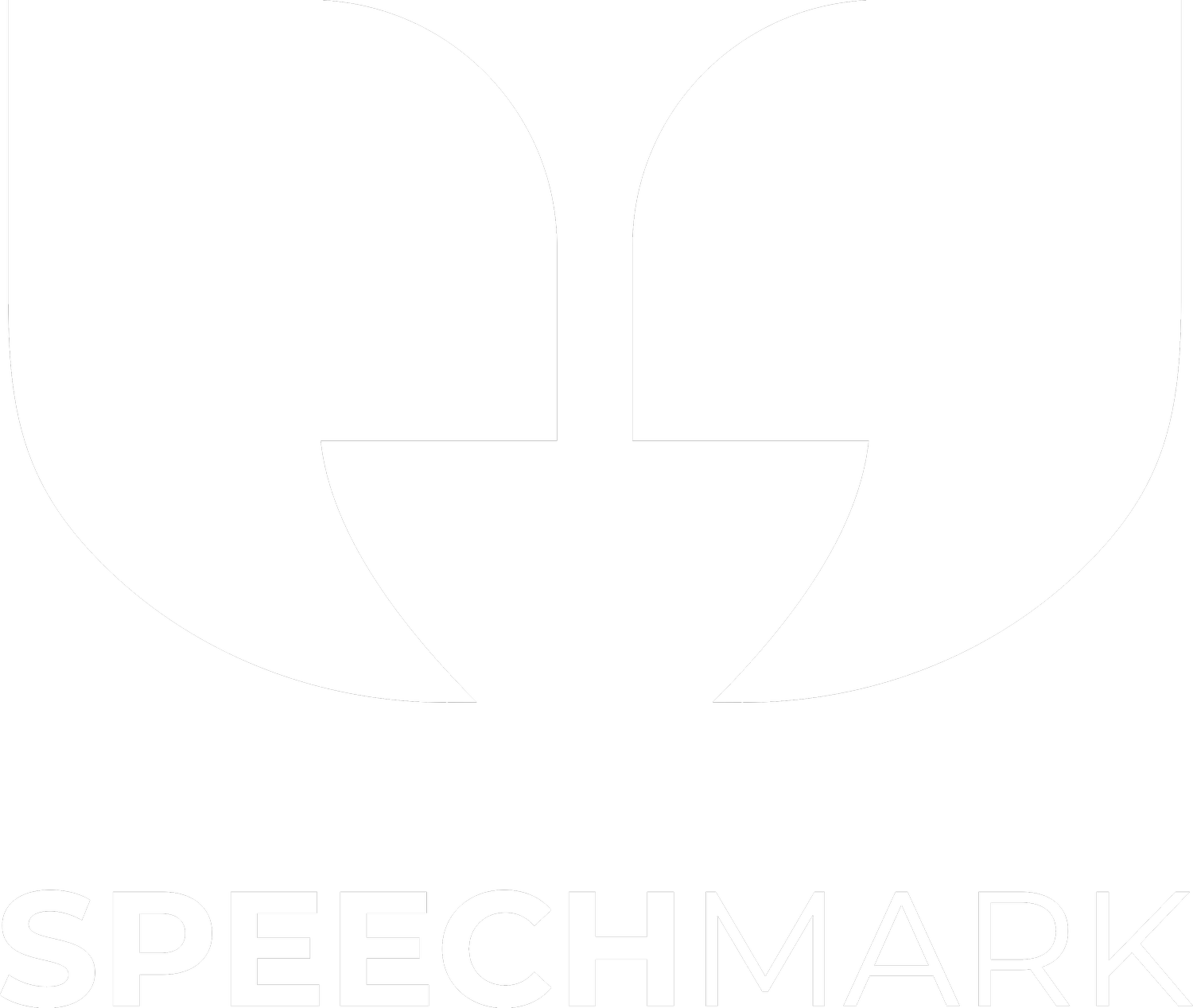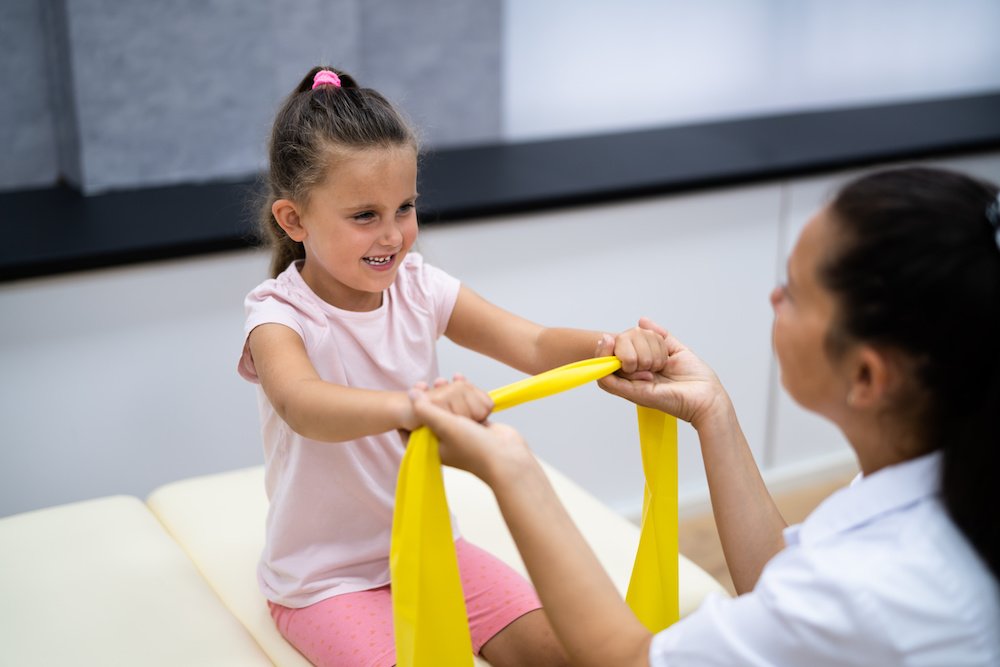Realise your potential.
Helping children and adults across multiple areas of communication.
Our Values
Compassion
As Allied Health Professionals, we realise the importance of compassion by the connection that we make with our clients. This not only enhances their wellbeing, but it also helps to improve their satisfactory results.
Enjoyment
We love what we do! Along with our research and clinical learning, working with our clients is what brings us enjoyment! We always strive to give our clients joyful experiences when working with us!
Individualisation
At Speech Mark, we always ensure to customise our assessment and treatment plans to each individual as we know that everyone's needs are different. Individualisation is important to form a customised planned assessment and treatment for a successful outcome.
Trust
Developing trust with our clients is vital as it provides a sense of safety in our processes. Trust also encourages for a smoother process and helps to form a confident and comfortable bond with our clients.
Working with children
At Speech Mark, we offer a range of health services to children of all ages. We are committed to ensuring that each child receives the best possible care and attention, in a safe, comfortable, and nurturing environment.
Our team of compassionate professionals are highly trained to address the unique health and developmental needs of children at every stage of their growth. We utilise a multidisciplinary approach to care, which means our team collaborates to offer a full spectrum of services, from initial assessment, diagnosis, treatment and management.
We understand how important it is to provide child-friendly, accessible and age-appropriate services that build trust, confidence, and respect. Our goal is to make sure every child receives the care that they deserve, and to support their physical, emotional, and cognitive development.
Empowering students
We are committed to providing outstanding Allied Health services to students. We recognise that students may face various challenges that may impact their ability to learn and develop.
Our team of experienced Allied Health professionals are dedicated to creating a supportive environment that encourages positive development. We engage with students to gather relevant information about their communication and physical skills, while working collaboratively to develop tailored treatment plans that specifically meet their needs.
Our goal is to provide comprehensive care, utilising a wide range of evidence-based approaches that promote communication, well-being, and academic success. We value the importance of students’ confidentiality, privacy, and autonomy, and we are committed to providing compassionate high-quality care.
Catering to adults
We offer a range of Allied Health services to adults, with a focus on providing effective and personalised care to improve their communication and overall well-being. Our team of qualified Allied Health professionals are committed to developing a deep understanding of each client’s unique circumstances and challenges.
We work closely with each client to develop personalised treatment plans that address their communication and physical conditions. Our team utilises scientific research and treatment options, together with a holistic and client-centered approach, to promote communication, physical mobility, and independent living.
We recognize the significant impact of communication and physical issues on adults' daily lives, and we are dedicated to providing compassionate, high-quality care to improve our clients’ overall quality of life.
Our Services
We offer Speech Pathology services in the clinic, home and school settings. We also offer telehealth services, including phone and video sessions.
-
Receptive language is comprehension or the understanding of what other people say. People who have trouble with receptive language skills may experience difficulty following instructions and understanding questions or words.
Expressive language is the way people use words and sentences to express their thoughts, feeling and ideas. People who have trouble with expressive language skills may experience difficulty asking questions, using words to formulate sentences, naming objects or actions or telling a story.
Some terms used to describe language difficulties include: Language Disorder/Delay, Developmental Language Disorder (DLD), language impairment associated with Autism Spectrum Disorder (ASD), Intellectual Disability, Attention Deficit Hyperactivity Disorder (ADHD), and other conditions.
-
Speech is the way we make speech sounds, put sounds together, and hear and think about speech. People who have trouble with their speech may have difficulty with consonants and/or vowels which are hard for others to understand.
Different types of speech difficulties can include: Speech Sound Disorder, Phonological Disorder, Articulation Disorder, Childhood Apraxia of Speech(CAS) or dysarthria.
-
Stuttering is where the flow of speech is interrupted. The types of interruptions can be repeating sounds (e.g., m…m…my), repeating words (e.g., when…when…when), prolonging or ‘stretching out’ sounds (e.g., mmmmmum) or getting ‘stuck’ where no sound is coming out. People who stutter may also experience non-verbal behaviours such as body movements, facial grimacing etc.
-
This is how people use verbal and non-verbal skills to communicate messages such as eye contact, topic maintenance, negotiation and other conversational skills.
-
Literacy skills includes early literacy skills, reading and writing. Early literacy skills are when a child knows the sounds each letter makes, breaking up words into sounds, rhyming and having print awareness (e.g., knowing about words on a page).
People with speech and/or language difficulties are at a greater risk of developing literacy difficulties. Some terms used to describe people with reading and writing difficulties include phonological awareness difficulties, dyslexia and reading impairment.
-
This includes but not limited to Autism Spectrum Disorder (ASD), Intellectual Disability, Down Syndrome, Cerebral Palsy and other disabilities.
People with disabilities may experience difficulties with their communication such as language skills and social skills.
We work on empowering people by helping them access early intervention support and also by enhancing their communication, social and community skills. In addition, we link people with external support and services when required such as Occupational Therapy, ABA therapy or other therapy programs.
-
Physiotherapy and Psychology coming in 2023. Please speak to our staff to enquire about these services.
Principal Speech Pathologist
Jouman Dennaoui (special interest in stuttering)
Jouman Dennaoui has been recognised and qualified as a Speech Pathologist since 2016. Graduating from the University of Sydney with a Bachelor of Applied Science (Speech Pathology), she was able to start her journey soon after and utilise her learnings.
She has also completed further Education and Training in: Stuttering (Lidcombe Program, School Aged workshop, Camperdown Program), Sensory Processing, Voice Craft and Psychology areas including Mindfulness and Assertive Communication workshops.
Jouman had the honour of meeting and working with Professor Mark Onslow in creating videos for the Lidcombe Program workshop; a stuttering intervention. She has participated in Speech Pathology research, including therapy for adults with aphasia, as well as looking into the attitudes and beliefs of young people who stutter. She has also been involved in continuing education for other speech pathologists in the area of stuttering at the South Western Sydney Stuttering Unit, a nationally recognised institution.
As a registered member of Speech Pathology Australia, Jouman gained experience in community, school and hospital settings during her earlier years as a Speech Pathologist. This helped her gain experience with various clients while implementing her knowledge and skills within the many sectors of Speech Pathology.
She has been involved in clinically educating student speech pathologists. She conducted further education in Augmentative and Alternative Communication (AAC), which is any type of communication strategy for people who are non-verbal or have significant difficulties speaking.
In addition, Jouman has conducted parent support groups, which have been a useful way to build support networks between parents and carers who are going through similar experiences.
Jouman works closely with client’s and families during assessment and intervention. She also uses an evidence based approach to all assessments and treatments with the management of people who have communication difficulties. She is also bilingual and speaks both Arabic and English fluently.
She has been able to share her passion through her services using her strengths and values which include individualisation, enjoyment, empathy and trust.
Our Team
Registered Practising Physiotherapists
At Speech Mark we have AHPRA Registered Practising Physiotherapists who have experience in private practice, various hospitals and community health centres.
We provide assessment and management of a range of physical issues associated with disabilities and other conditions such as (but not limited to) Multiple Sclerosis, Cerebral Palsy, Spinal Cord Injury and Global Developmental Delay.
We work on improving strength, mobility, flexibility, balance as well as reducing pain/stiffness and reducing the risk of injuries and falls. We work with a mixed caseload including children, aged care, workers compensation, disabilities, delays and people with chronic physical conditions.
5 Star google reviews!

Contact us for a
consultation today!
Phone: 0458 482 882
Email: info@speechmark.com.au
Address: Level 6, Suite 6.01, Flinders Centre, 25 Restwell St, Bankstown NSW 2200
Simply fill in the form below and we will get back to you as soon as possible!
Here are some resources in the meantime…
The Waiting for Speech Pathology web pages provide information and resources for families to support children’s communication development. These have been developed by Western NSW Local Health District and Charles Sturt University. Please refer to the webpages while you wait to see a speech pathologist.
These web pages are not intended to replace seeing a speech pathologist, but contain helpful information about what to do while you are waiting.
Where you can find us
Address: Level 6, Suite 6.01, Flinders Centre, 25 Restwell St, Bankstown NSW 2200
Join our team
Are you a Speech Pathologist, Occupational Therapist, Psychologist, Physiotherapist or any other Allied Health Professional and want to join a fun, vibrant and innovative team?
We have various opportunities available for qualified professionals who are passionate about providing quality healthcare services. We are committed to providing equal opportunities for all individuals and welcome diverse backgrounds and perspectives to strengthen our team.
So, if you are a dedicated and compassionate Allied Health Professional, we encourage you to apply! Simply, get in touch!















